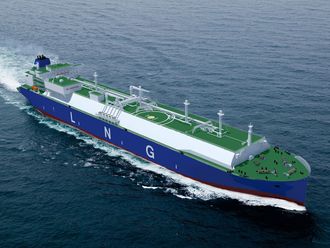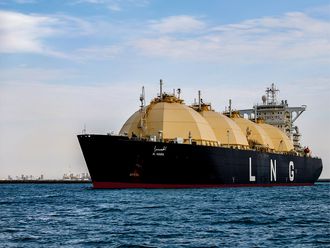Abu Dhabi: International oil prices may top $150 (Dh550) a barrel on rising tensions in the Middle East over Iran's nuclear programme, which potentially, could send the global economy back into recession, according to experts.
"If Israel attacks Iran, oil prices may well spike to $200 a barrel. The movement of oil in the Strait of Hormuz, through which major shipments from the region pass, will get disturbed, which may lead to higher costs of insurance and shipping," Khalid Al Awadi, a local energy analyst told Gulf News.
Israel's leadership remained silent on a report released late on Tuesday by the International Atomic Energy Agency (IAEA) claiming that Iran might be seeking a nuclear weapon.
Israel's defence minister warned on Tuesday of a possible Israeli military strike against Iran's nuclear programme and rejected suggestions the Jewish state would be devastated by an Iranian counterattack.
Markets remain healthy
The United Nations has imposed four rounds of sanctions on Tehran, but none has succeeded in curbing Iran's nuclear ambitions.
Iran has throughout maintained that its nuclear programme is entirely for civilian purposes.
"War involving Iran could lead to oil supply disruption. The extent of the possible disruption would depend on the scale of the war," said Giyas Gokkent, chief economist at the National Bank of Abu Dhabi.
"Iran is in its own right an important producer of oil. The Arabian Gulf is an important passageway for oil exports. The UAE is working to complete a pipeline to Fujairah, so that it is able to continue exports via the Indian Ocean. Prices could easily exceed 2008 levels in the event of a large scale disruption. Oil revenues would rise provided supply continues," Gokkent added.
Meanwhile, the Paris-based International Energy Agency (IEA) has said oil prices could reach $150 per barrel in the near term if investment in the Middle East and North Africa (Mena) oil-producing region falls significantly.
"If between 2011 and 2015, investment in the Mena region runs one-third lower than the $100 billion per year required, consumers could face a near-term rise in the oil price to $150 per barrel," the IEA said in its annual World Energy Outlook.
The IEA, adviser on energy policy to as many as 28 industrialised countries, said global oil demand would rise steadily over the next two decades to reach around 99 million barrels per day (bpd) by 2035.
Separately, Bank of America Merrill Lynch said in a report they remain bullish on oil prices for 2012 as "global oil markets remain heavily under-supplied relative to the expected pace in economic growth".












